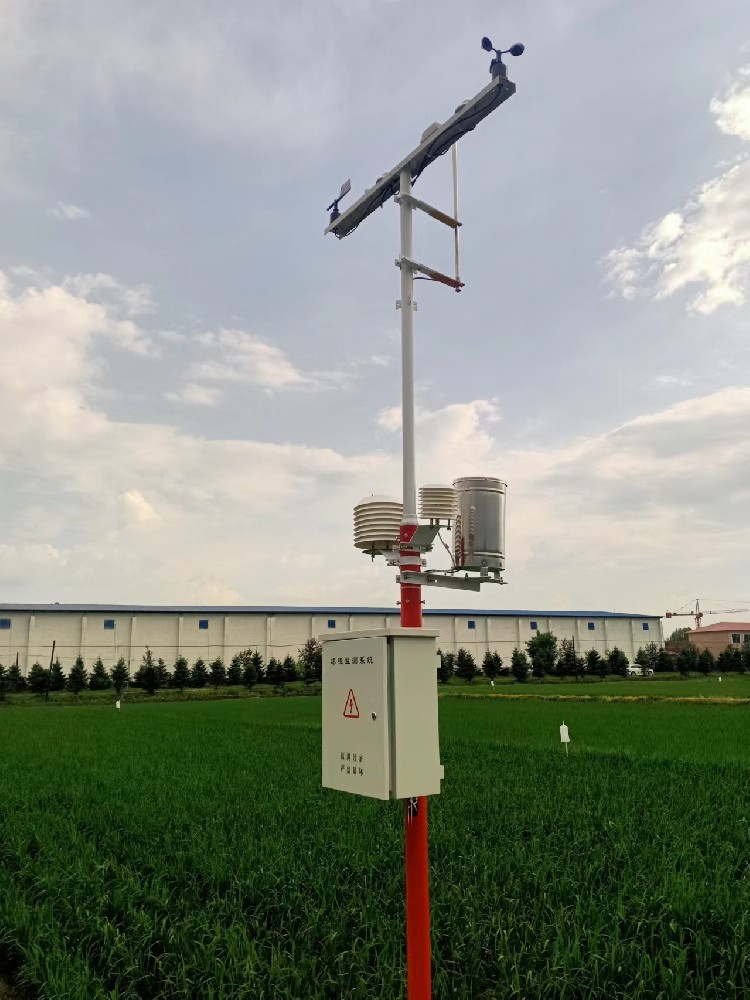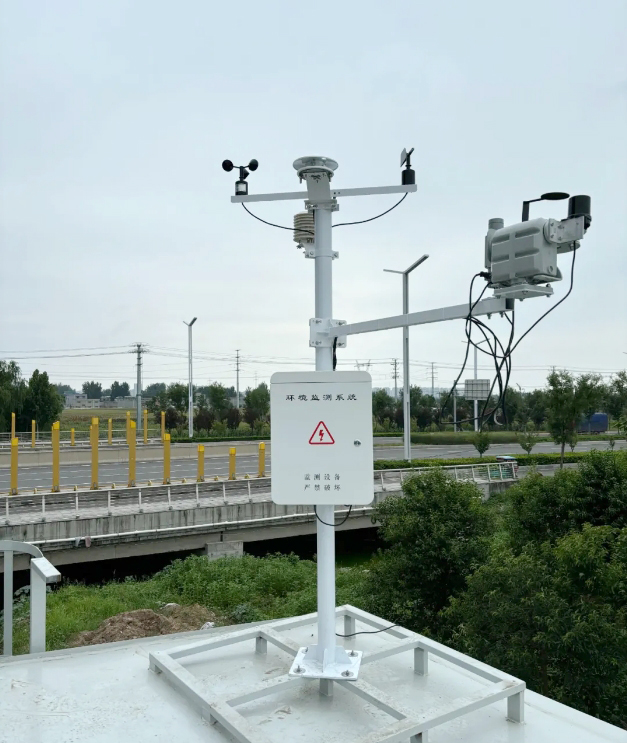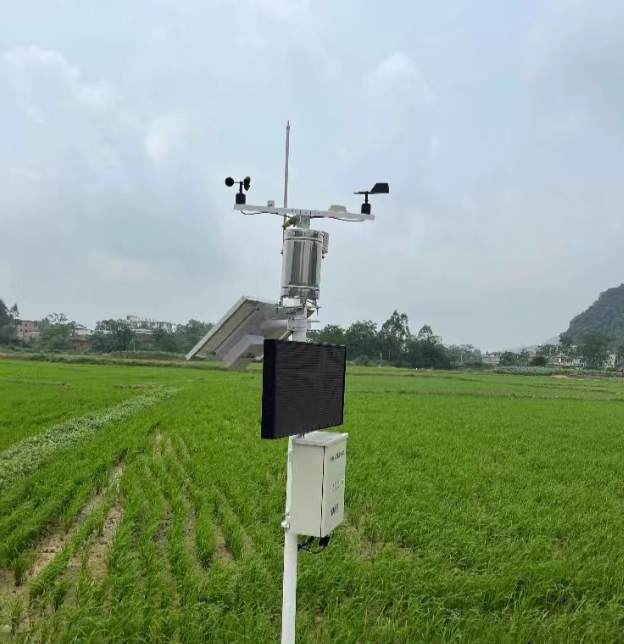

— Products —
 Consumer hotline +8618073152920
Consumer hotline +8618073152920 WhatsApp:+8615367865107
Address:Room 102, District D, Houhu Industrial Park, Yuelu District, Changsha City, Hunan Province, China
All products
Commercial Weather Station is a weather monitoring equipment specially designed to provide commercial weather services with high precision, real-time monitoring, and customized design. It can provide data support and services for agricultural production, environmental monitoring, energy development, transportation and meteorological research, helping users to optimize decision-making and planning, and improve production efficiency and safety.
Tel/WhatsApp:+8615367865107
Email:Arvin@niubol.com +Nearly 100 partner company in more than 68 countries. We are committed to providing high-quality, practical products to meet your needs and help you solve problems.Product Details
Commercial Weather Station is a kind of weather monitoring equipment specially designed for providing commercial weather services. It is usually equipped with a series of high-precision sensors and data processing systems, capable of real-time monitoring and recording various meteorological elements, such as temperature, humidity, wind speed, wind direction, rainfall, barometric pressure, etc., and transmitting the data to remote data centers or user terminals to provide data support for meteorological forecasting, agricultural production, environmental monitoring, energy development and other fields.
 |  |  |  |  |
| Anemometer Wind Speed sensor | Wind direction sensor | Tipping bucket rain gauge sensor | Tipping bucket rain gauge sensor | Piezoelectric Rain Gauge |
 |  |  |  |  |
| Atmospheric Temperature Humidity air pressure Sensor | ultrasonic wind speed and direction sensor | 5 in1 Ultrasonic Weather Station Sensor | All-in-One Weather Station | 7 in1 Ultrasonic Weather Station Sensor |
 |  |  |  |  |
| Solar Radiation Sensor | Solar Radiation Sensor | Photosynthetically Active Radiation Sensor; | illumination sensor | Ultrasonic Snow Depth Sensor |
 |  |  |  |  |
| Noise measurement sensor | CO2 sensor | PM2.5 and PM10 sensors | Visibility sensors | Soil Moisture Temperature sensor |
1. Temperature sensor: used to measure the ambient temperature, which is an important parameter in areas such as weather forecasting and agricultural production.
2. Humidity sensor: used to measure environmental humidity, which plays a key role in meteorological disaster warning and agricultural production, etc.
3. Wind speed sensor: used to measure wind speed, providing important data support for weather forecasting and wind power generation.
4. Wind Direction Sensor: Used to measure the wind direction, to ensure that it can accurately record the wind changes in all directions.
5. Rainfall Sensor: Used to measure rainfall, which is important for water resource management and flood control and drought relief.
6. Barometric pressure sensor: Used to measure atmospheric pressure, which is also valuable for weather forecasting and meteorological research.
7. solar radiation sensor: monitoring the total solar radiation or specific band radiation, important for solar power generation and agricultural photosynthesis research.
8. soil temperature and humidity sensors: particularly suitable for agriculture to help make accurate irrigation and fertilization decisions.
9. Carbon dioxide sensors( (CO2 sensor): monitor CO2 concentrations in closed environments such as greenhouses to optimize plant growth.
10. Evaporation sensors: assess water evaporation, useful for hydrology and agricultural water management.
11. Air quality sensors: monitor PM2.5, PM10, O3, NOx, etc., useful for urban environment monitoring and health protection.
12. Light intensity sensors: useful in agriculture for plant growth management and optimizing light utilization.
The combination of these sensors can be customized to meet the needs of specific commercial applications, ensuring that the most relevant and valuable weather data is provided. The data collected by commercial weather stations through these sensors can help companies make more accurate operational decisions, improve efficiency and reduce risk.
1. Real-time monitoring and data transmission: Commercial weather stations can monitor weather changes in real time and transmit the data to remote data centers or users to achieve real-time data sharing and analysis.
2. Customized design: Commercial weather station can be customized according to the specific needs of users, including sensor configuration, data transmission methods, data storage and analysis functions.
3. Easy to deploy and maintain: commercial weather station usually adopts modular design, which is easy to install and deploy, meanwhile, the system structure is simple and the maintenance cost is relatively low.
4. High-precision monitoring:
Adopting high-precision sensors and advanced data processing technology, commercial weather stations are able to monitor and record a variety of meteorological elements in real time, such as air temperature, humidity, wind speed, wind direction, precipitation, etc., and provide accurate data output.

5. Commercial operation mode:
Commercial weather stations are usually operated on a commercial basis to generate revenue by providing weather data and services. This is different from other weather stations (e.g. public weather stations) which mainly serve the public and the government and are funded by government grants or public funds.
6. Integrated management: Combined with cloud platform and data analysis tools, it provides a visualized interface for remote monitoring and management.
7. Reliability: Adoption of high-quality sensors and materials ensures stable operation of the equipment under a wide range of environmental conditions.
8. Networking: Support remote data transmission, which makes it easy for users to get weather information anytime and anywhere.
9. Expandability: Sensors can be added or replaced as needed to meet different monitoring needs.
1. Provide commercial meteorological services: Commercial weather station can provide users with real-time meteorological data to support decision-making and planning in the fields of meteorological forecasting, agricultural production, environmental monitoring, energy development and so on.
2. Improve production efficiency: Through real-time monitoring of meteorological changes, commercial weather stations can help users adjust production plans in a timely manner and improve production efficiency and quality.
3. Reduce operating costs: Commercial weather stations can provide users with accurate weather data, help users optimize resource allocation and reduce operating costs.
4. Enhance safety: In the early warning of meteorological disasters, commercial weather stations can provide users with timely and accurate weather information to help users take effective disaster prevention measures to protect the safety of personnel and equipment.

1. Different service objectives: commercial weather stations mainly serve commercial users and provide customized weather data and services; while other weather stations (such as public weather stations) mainly serve the public and the government and provide general weather forecasts and disaster warnings.
2. Different data accuracy and processing methods: commercial weather stations usually adopt high-precision sensors and advanced data processing systems, which are able to provide more accurate and detailed weather data; whereas other weather stations may adopt simpler sensors and data processing methods, with relatively lower data accuracy and processing capability.
3. Different operation modes and sources of funding: commercial weather stations usually adopt a commercialized operation mode and gain revenue through the provision of meteorological data and services, while other weather stations may be operated by the government or public institutions, and the source of funding mainly relies on government appropriations or public funds.
4. Flexibility: Commercial stations can be large or small in scale and are highly adaptable, while research stations may focus more on long-term observation and scientific research.
5. Service customization: Commercial stations provide customized services to meet specific business needs, while other types may focus on generic data services.
6. Functional complexity: Commercial weather stations are equipped with more complex functions, such as more advanced data processing and analysis capabilities.
7. Cost: Commercial weather stations usually cost more than general weather stations.
8. Maintenance and service: Commercial weather stations usually provide more professional maintenance and service support.

Commercial weather stations can provide real-time meteorological data support for agricultural production, help farmers better organize agricultural production activities, and improve the yield and quality of crops.
Commercial weather stations can be used in the field of environmental monitoring to provide data support for environmental protection and sustainable development. For example, monitoring the concentration of pollutants in the air, temperature, humidity and other parameters to assess the quality of the environment and develop appropriate protective measures.
In the development of renewable energy sources such as solar energy and wind energy, commercial weather stations can provide real-time meteorological data support to help energy companies optimize energy allocation and power generation efficiency.
Commercial meteorological stations can provide real-time meteorological data support for the field of transportation to help the traffic management department to adjust the traffic plan in time and ensure the safety of public travel.
Commercial weather stations can also provide data support for the field of meteorological research to help researchers study the laws and mechanisms of meteorological changes and promote the development of meteorological science.
events are scheduled to ensure safety and comfort.
environmental impact assessment, improving energy-efficient design of buildings.
Summary
Commercial Weather Station is a weather monitoring equipment specially designed to provide commercial weather services with high precision, real-time monitoring, and customized design. It can provide data support and services for agricultural production, environmental monitoring, energy development, transportation and meteorological research, helping users to optimize decision-making and planning, and improve production efficiency and safety.
Compared with scientific research or public meteorological services, commercial weather stations differ in terms of service objectives, data accuracy and processing, operation mode and funding sources. Commercial weather stations pay more attention to real-time data, accuracy, economic benefits and adaptability to specific business needs. They are widely used in many commercial fields and have become an important support tool for modern business decision-making, which can help industries effectively respond to weather changes, optimize operation strategies, reduce risks and improve efficiency. In the future, with the development of meteorological science and technological advances, commercial weather stations will play an important role in more fields.
Sensors & Weather Stations Catalog
Agriculture Sensors and Weather Stations Catalog-NiuBoL.pdf
Weather Stations Catalog-NiuBoL.pdf
Related recommendations
 Multi-Depth Soil Sensor RS485
Multi-Depth Soil Sensor RS485 TDR Soil Moisture Sensor
TDR Soil Moisture Sensor Pyranometer Solar Radiation Sensors
Pyranometer Solar Radiation Sensors Soil ph sensor
Soil ph sensor Tipping Bucket Rain Gauge
Tipping Bucket Rain Gauge Air Temperature and Humidity Sensor
Air Temperature and Humidity Sensor
Screenshot, WhatsApp to identify the QR code
WhatsApp number:+8615367865107
(Click on WhatsApp to copy and add friends)
